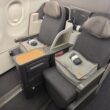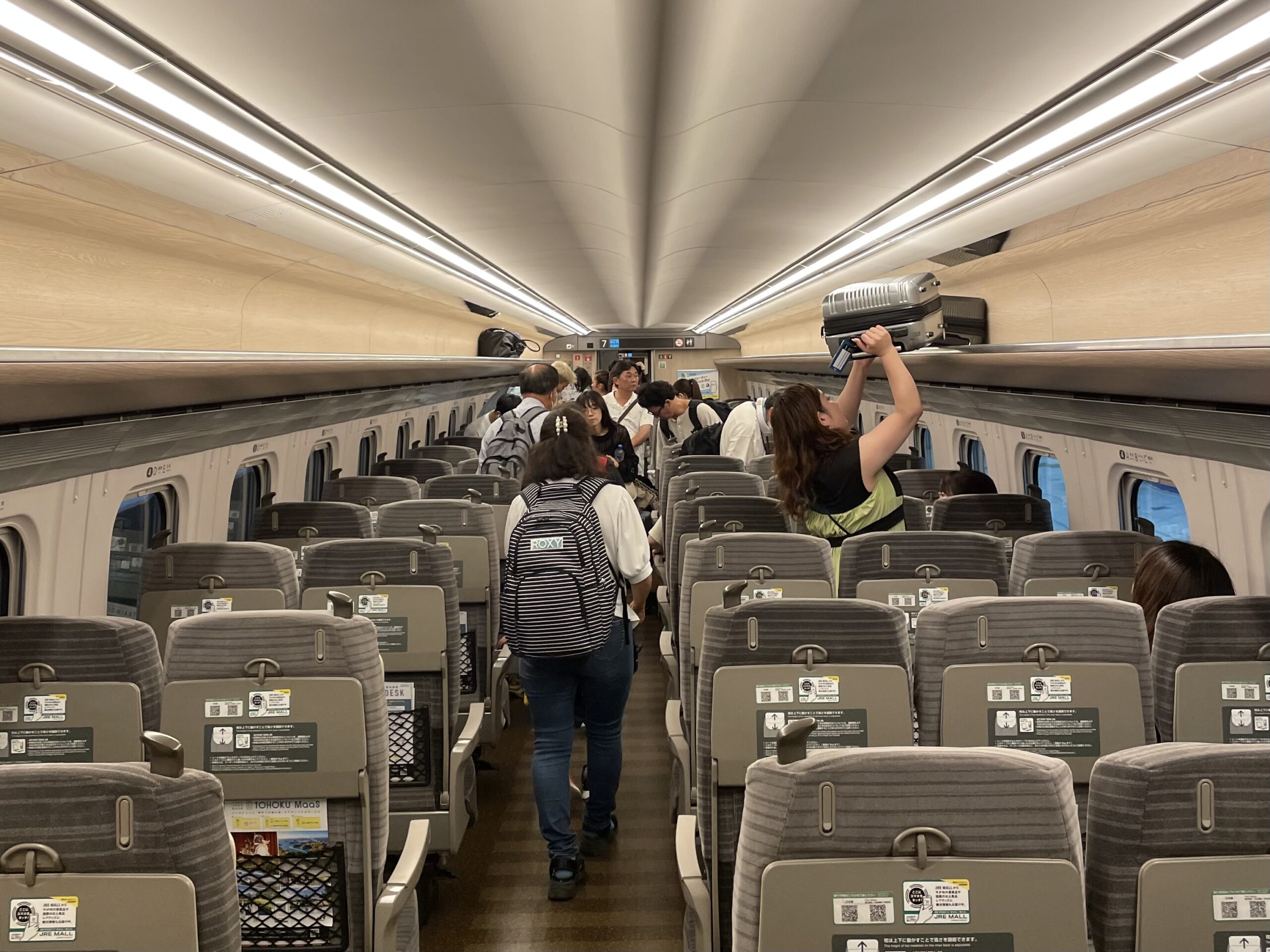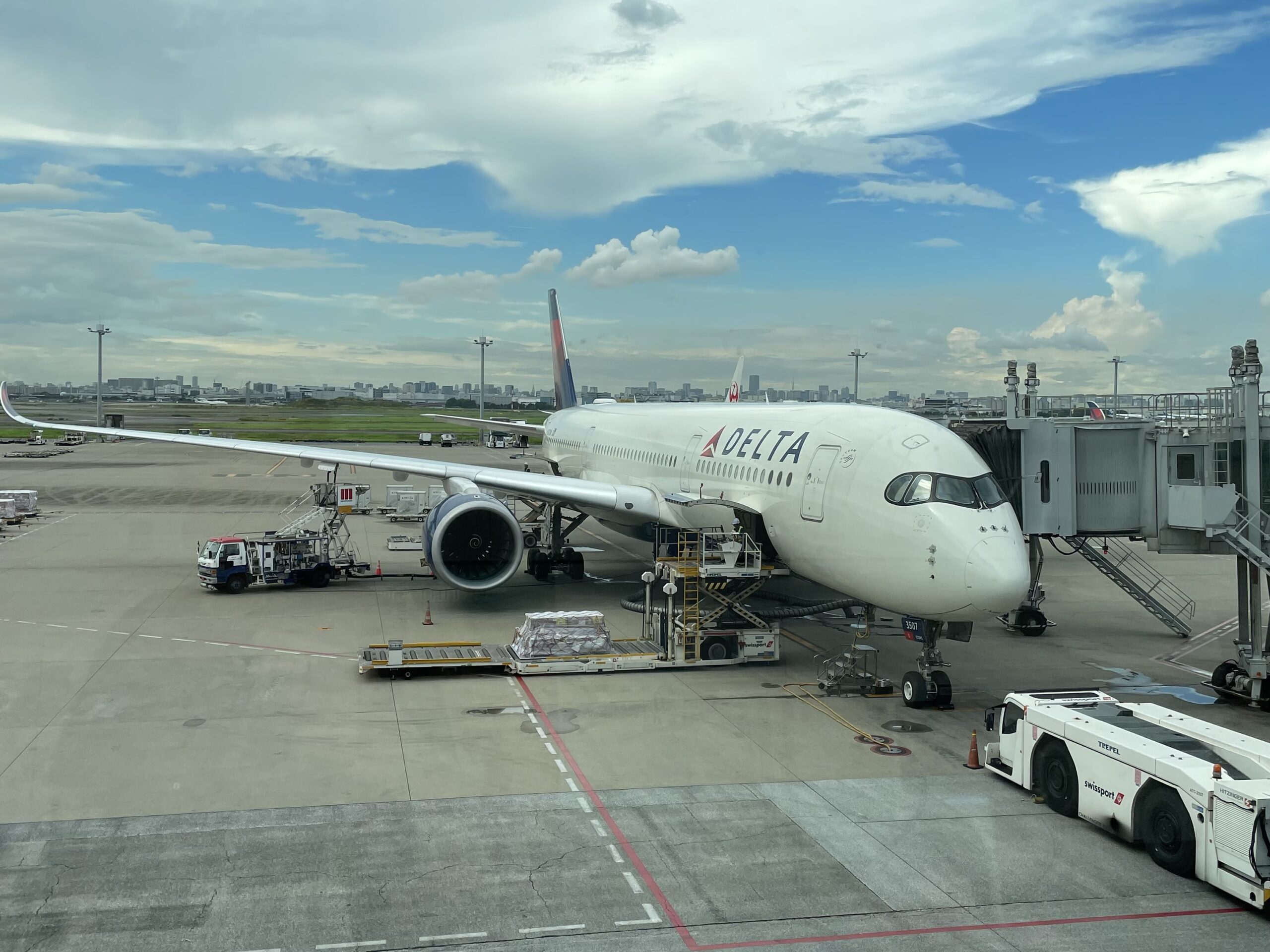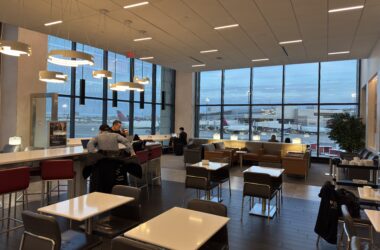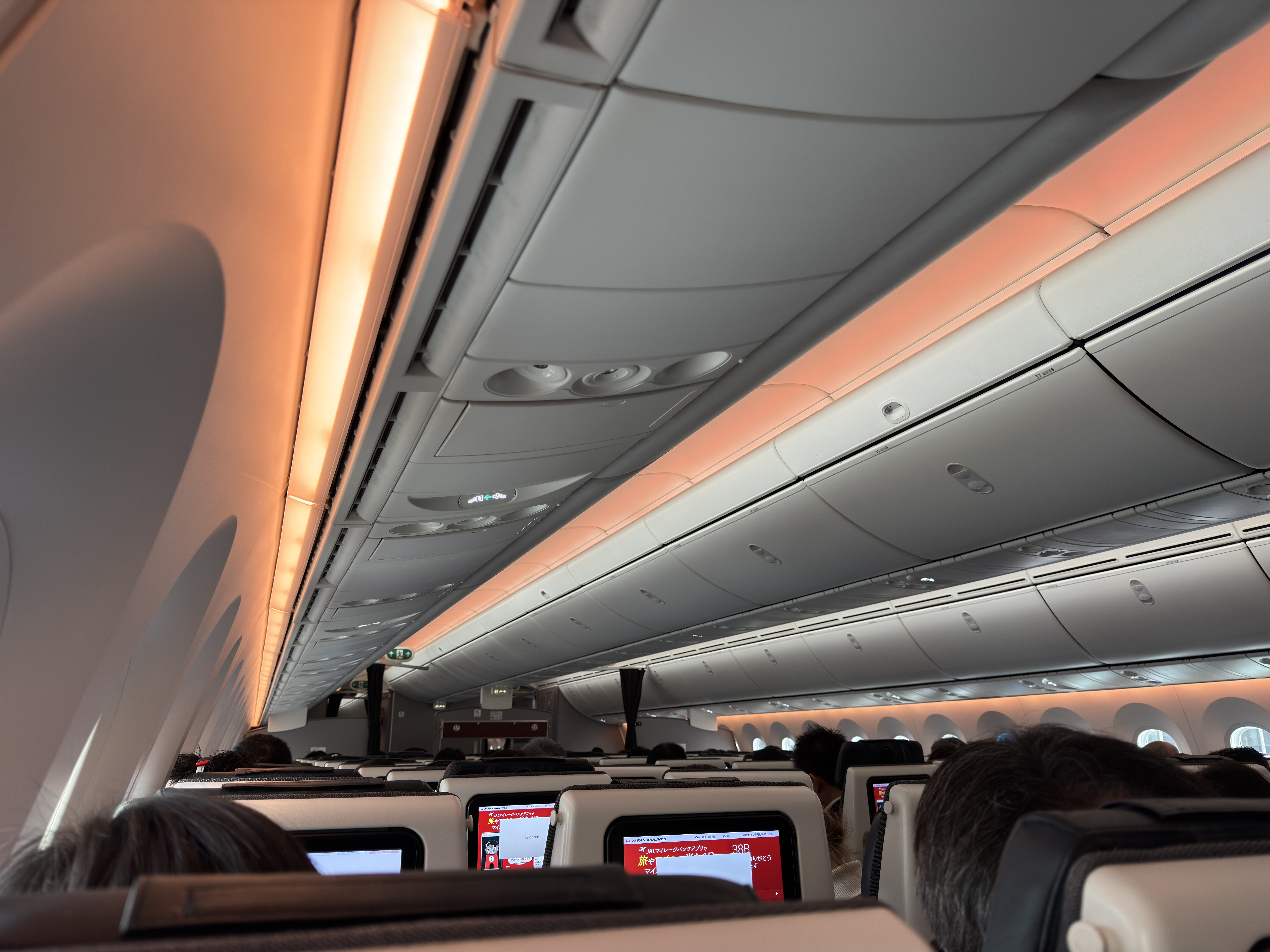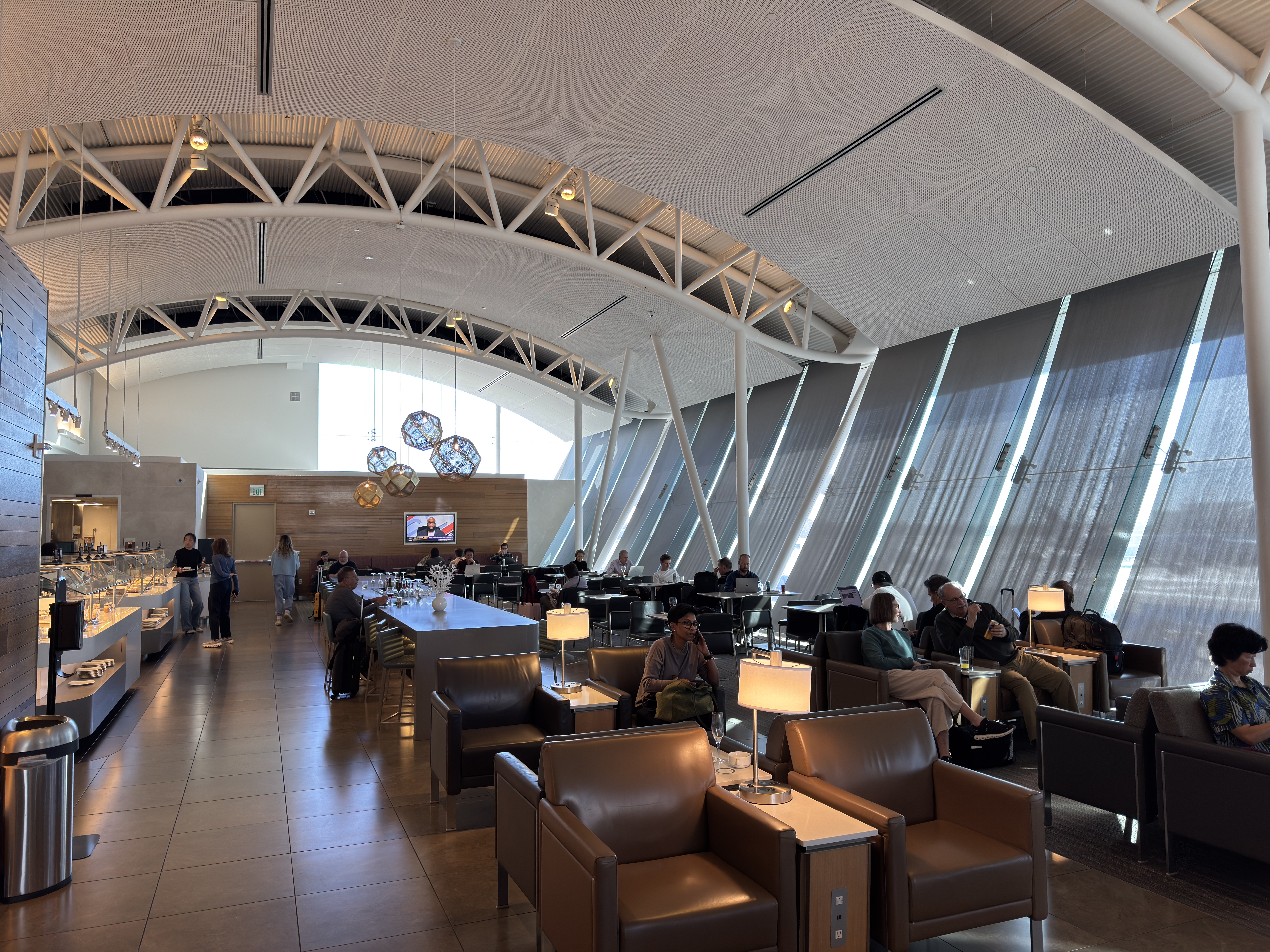Japan’s high speed rail network is known to be one of the best in the world. Many Japanese residents and tourists visitors utilize this clean, efficient, and reliable system. I recently got a chance to ride one of the Shinkansen lines. Originating in Tokyo, I rode the Tohoku Shinkansen up to Northern Japan. Read below for a comprehensive review of that trip.
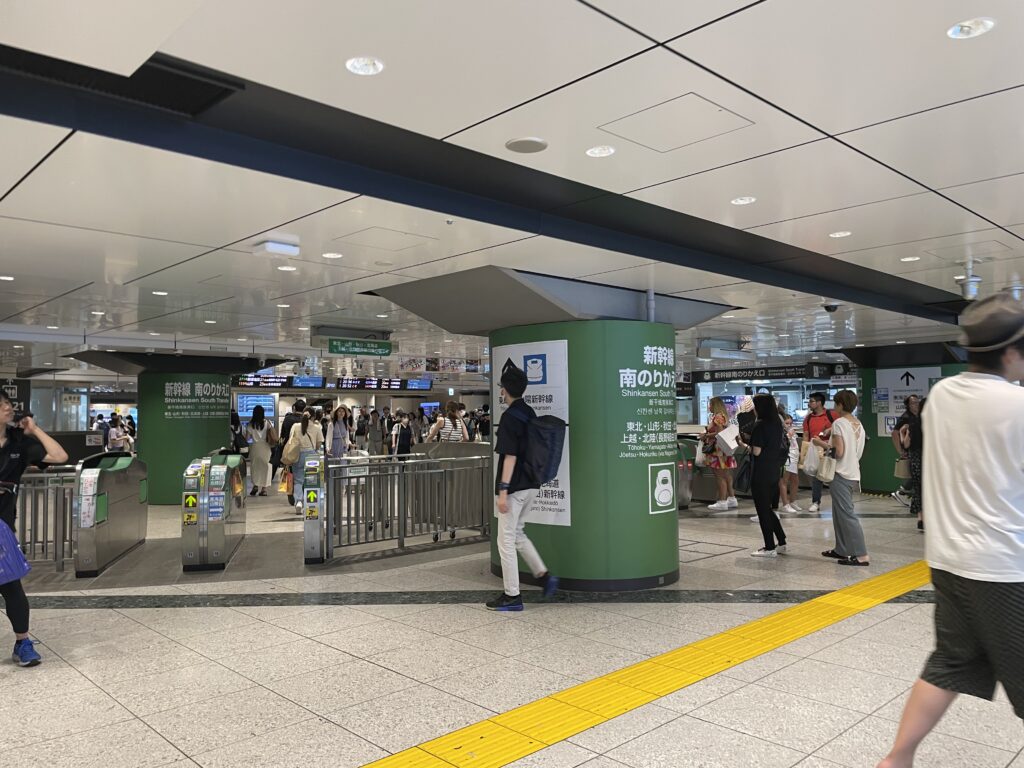
Boarding the Train
Tokyo has several major stations, but Shinkansen trains all originate in Tokyo Station. Entrances vary depending on where you’re going, so be on the lookout for the right one. Generally, trains heading north will use the green themed JR East entrance, and trains heading west will use the blue themed JR Tokai/West entrance.
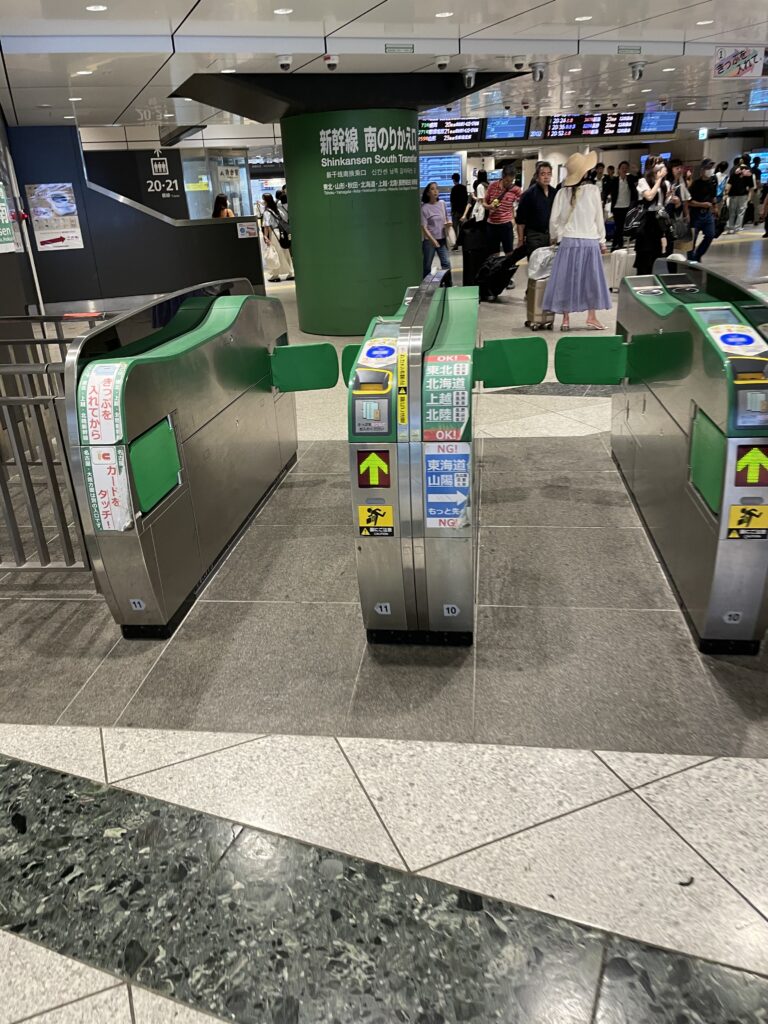
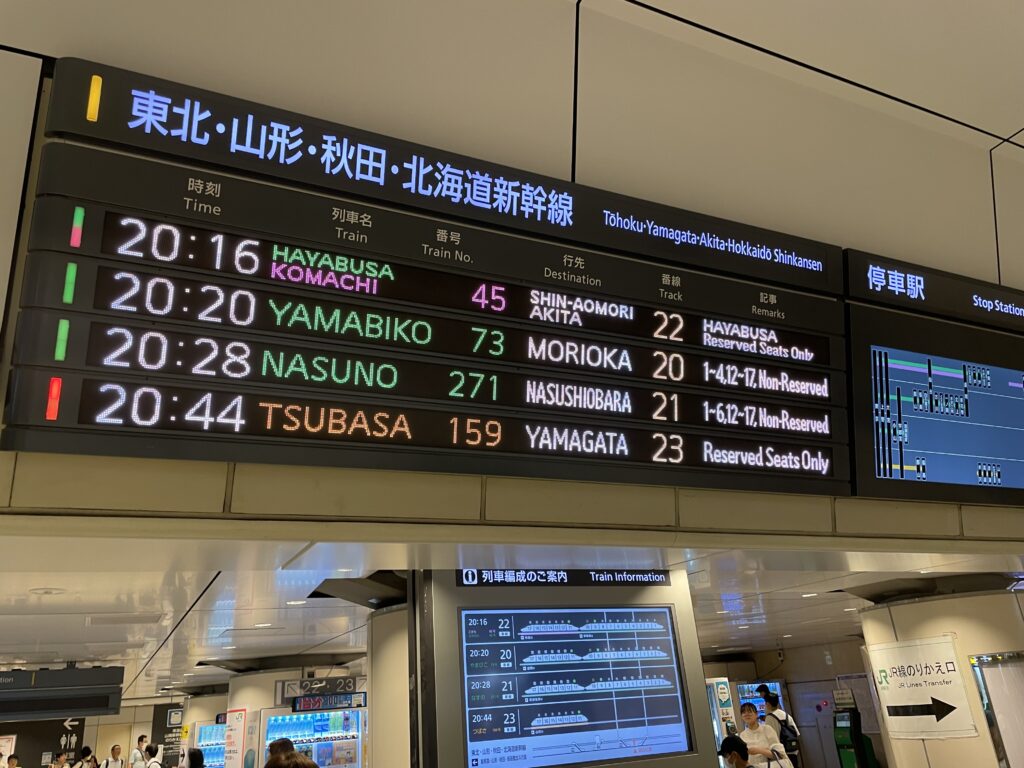
Once you go through the ticket gates, most people go up to the platform right away. Whereas stations in Europe and the United States have large waiting areas and terminal buildings, Japanese stations don’t have much in the way of places to wait in the station (there are some designated waiting areas in parts of the station, but don’t count on them to have open seats). Instead, passengers will just wait on the platform for their train. As you can see in the pictures above, I went through the ticket gate, and found my 20:16 train departing from platform 22.
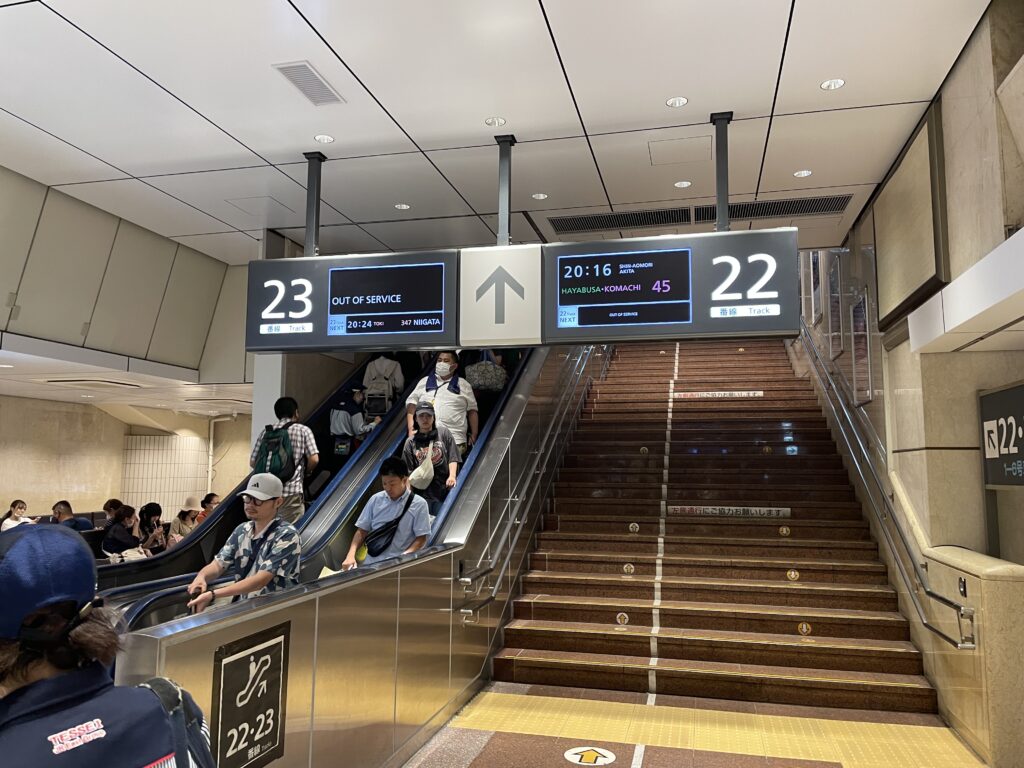
There were a lot of travelers going various places for summer vacation.
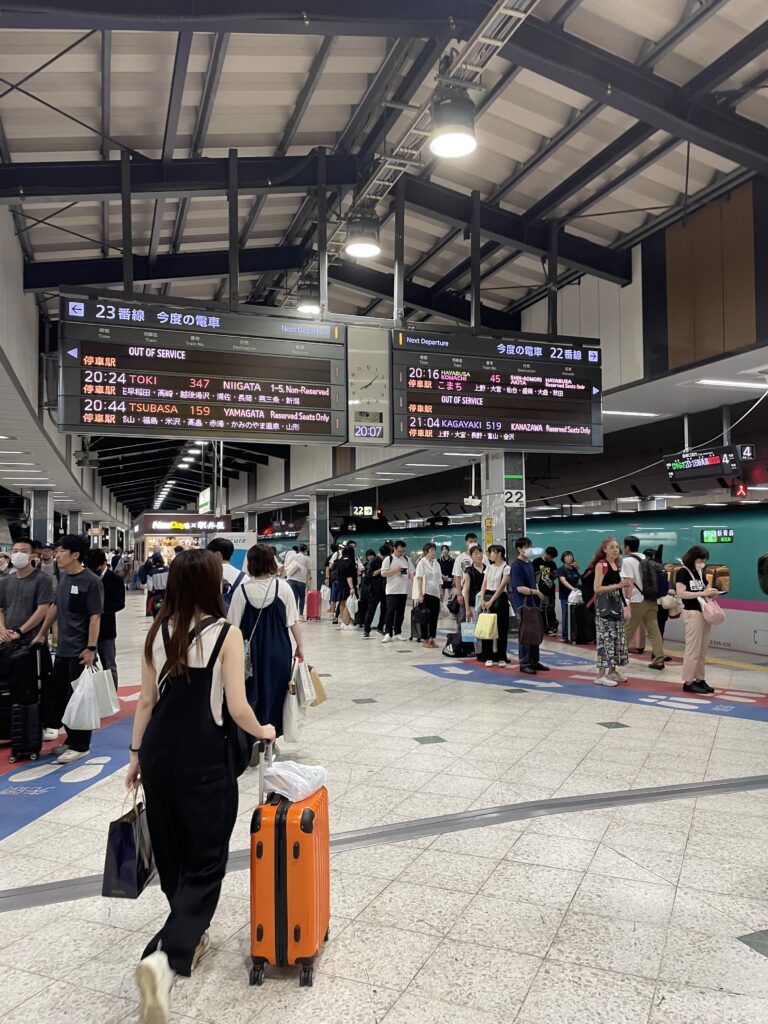
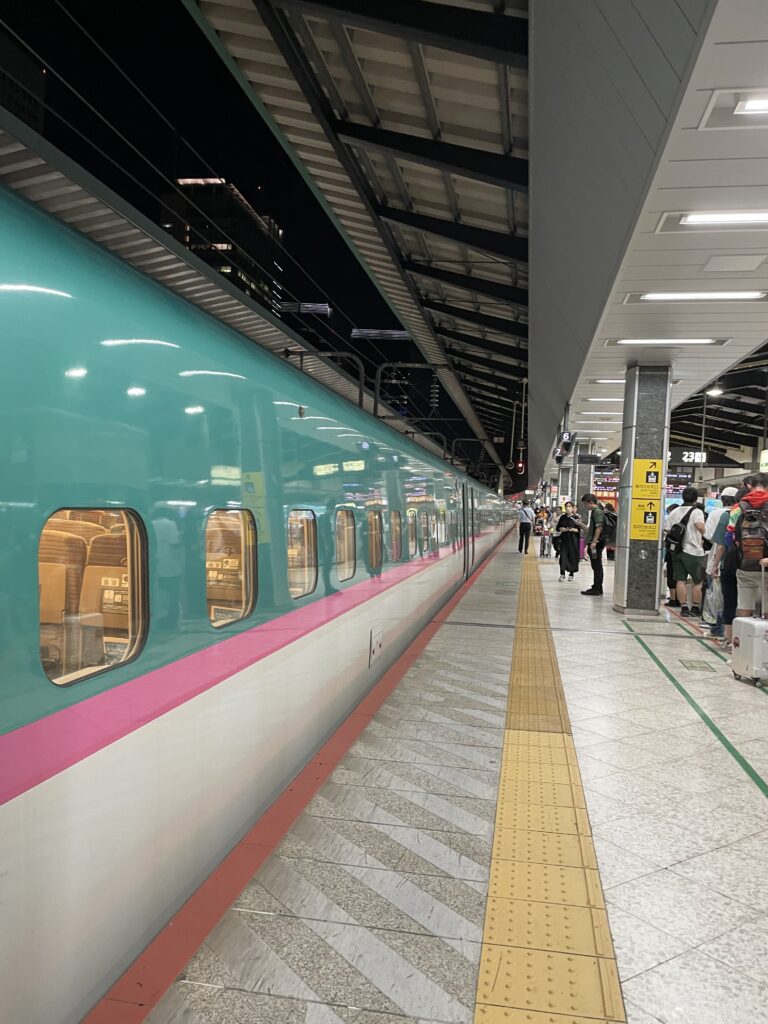
I got to the platform around 10 minutes before departure. This is generally enough, as long as you have enough time so that you don’t have to run.
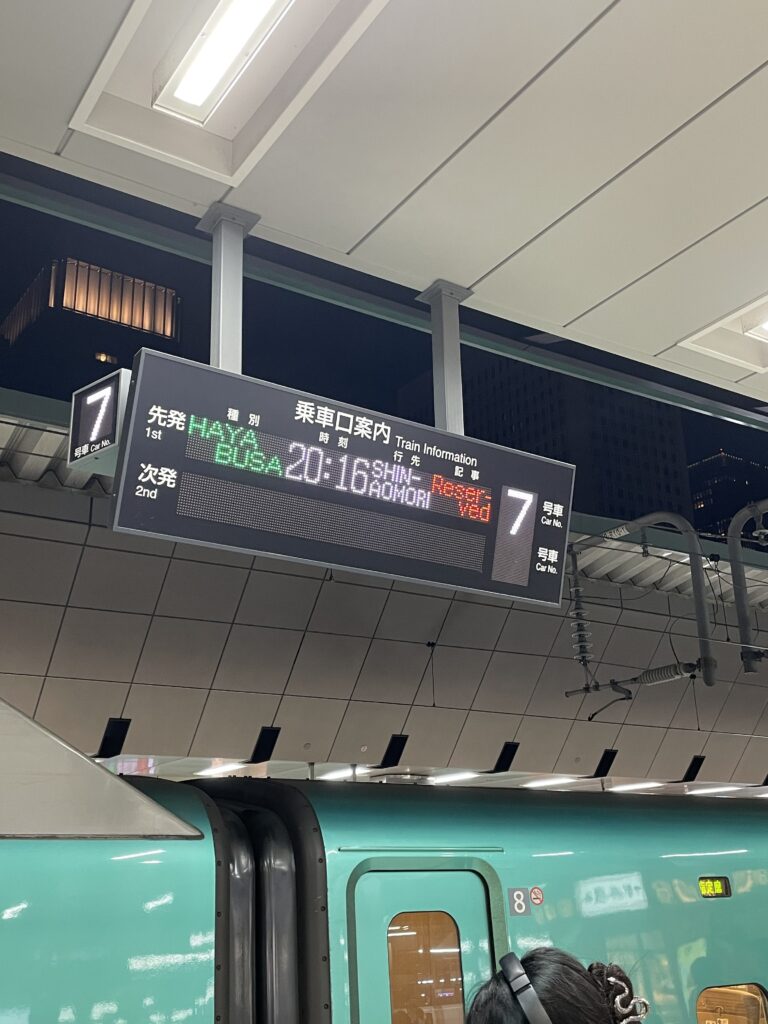
Once I got to the platform, I walked to my car number (car 7). We had to wait the cleaners to finish before we could get on. The doors opened around 5 minutes before departure time.
Interior Impressions
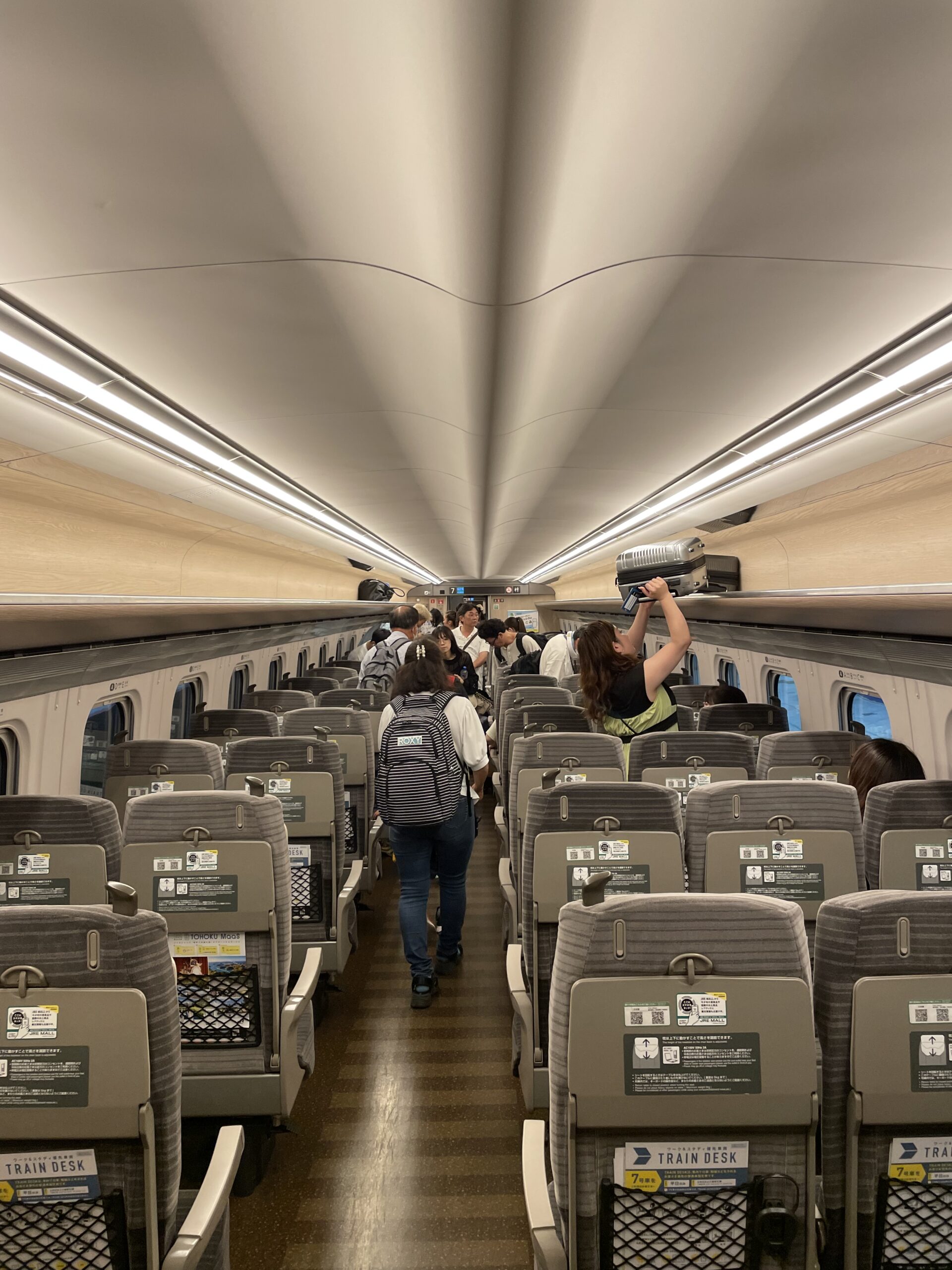
The seats were laid out in a 2-3 configuration. Although everyone boarded at once, everything moved rather smoothly.
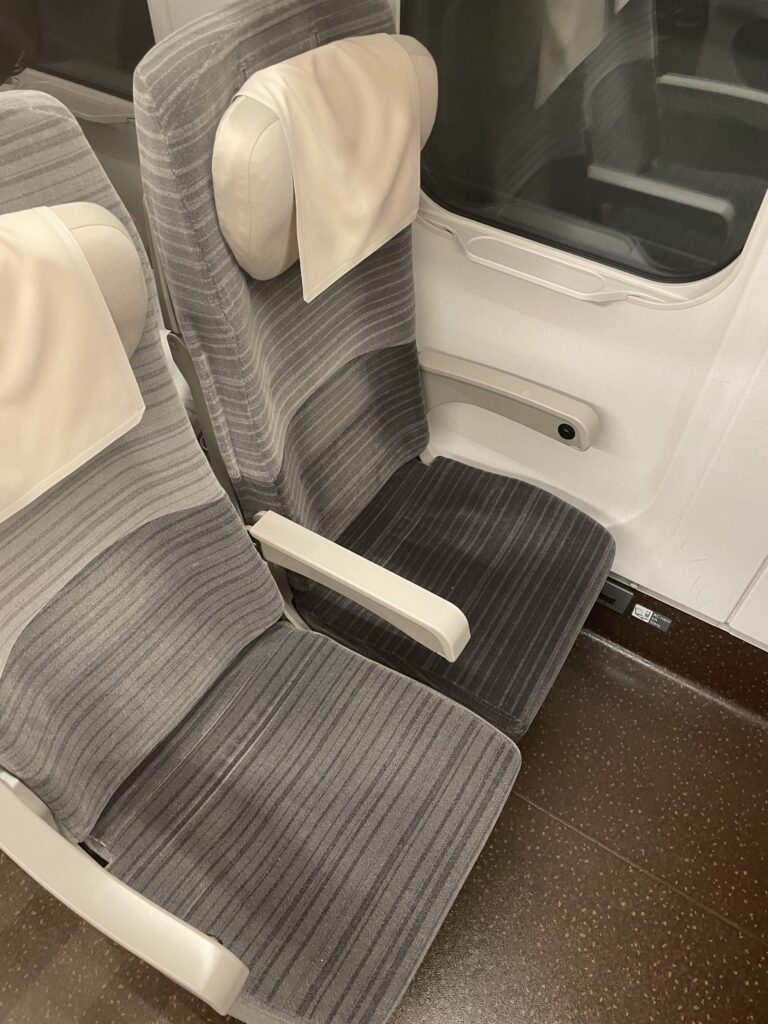
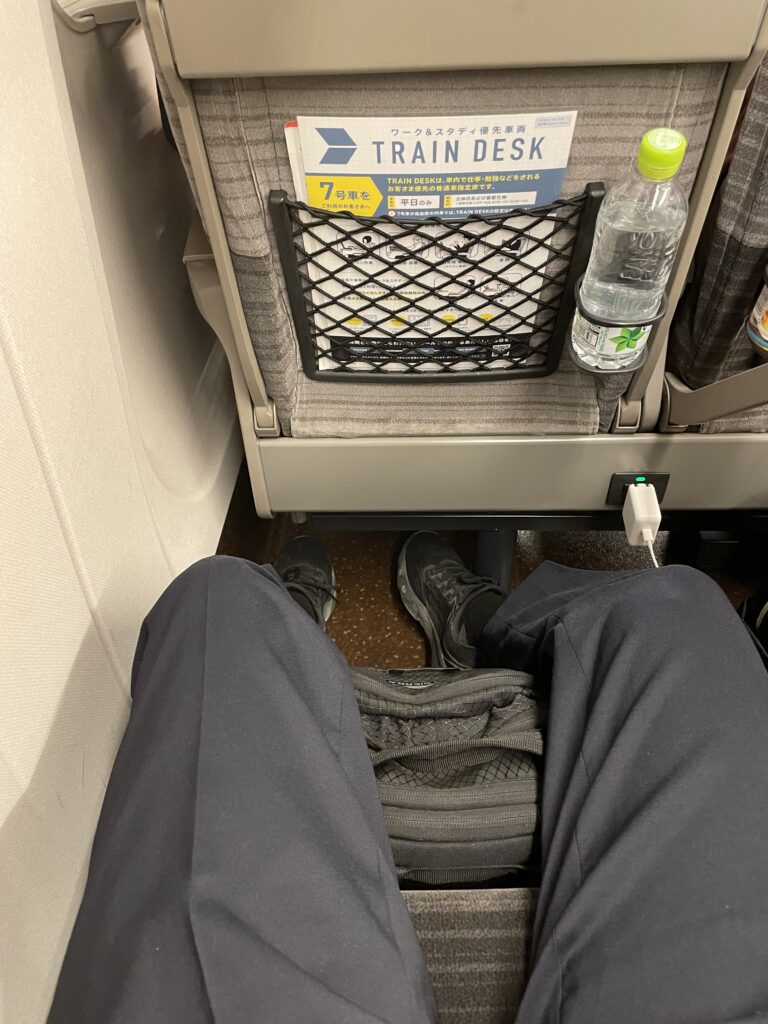
I sat on the window, at seat E. The legroom was plenty, I had my backpack below my seat, but I still had room to move my legs, as you can see in the photo above. Some people might find the seat width to be too small (around 18 inches, similar to an airplane). I’m relatively on the slim side, and the seat can feel tight even for me. There are larger seats in car 9, called the “Green Car” which is their equivalent of a premium economy class on an airplane with a 2-2 layout. They also have a first class equivalent “Gran Class” in car 10 that comes with a much higher price tag.
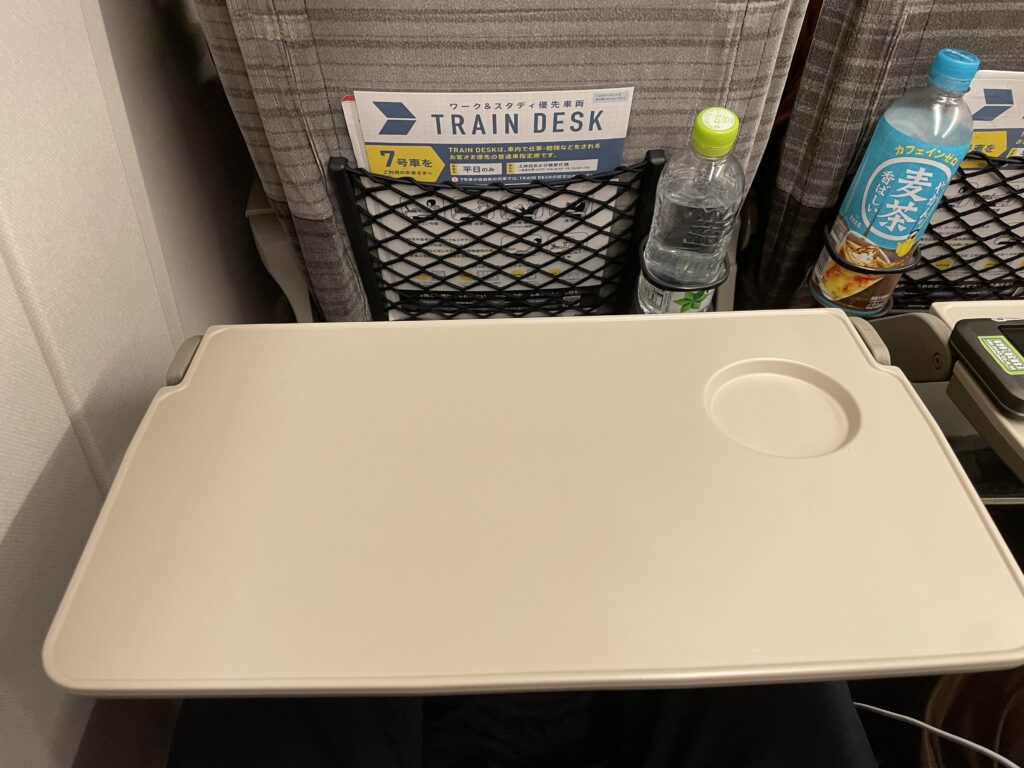
The tray table was a decent size. There was enough space for my MacBook to do work, and I found it quite firm and in place.
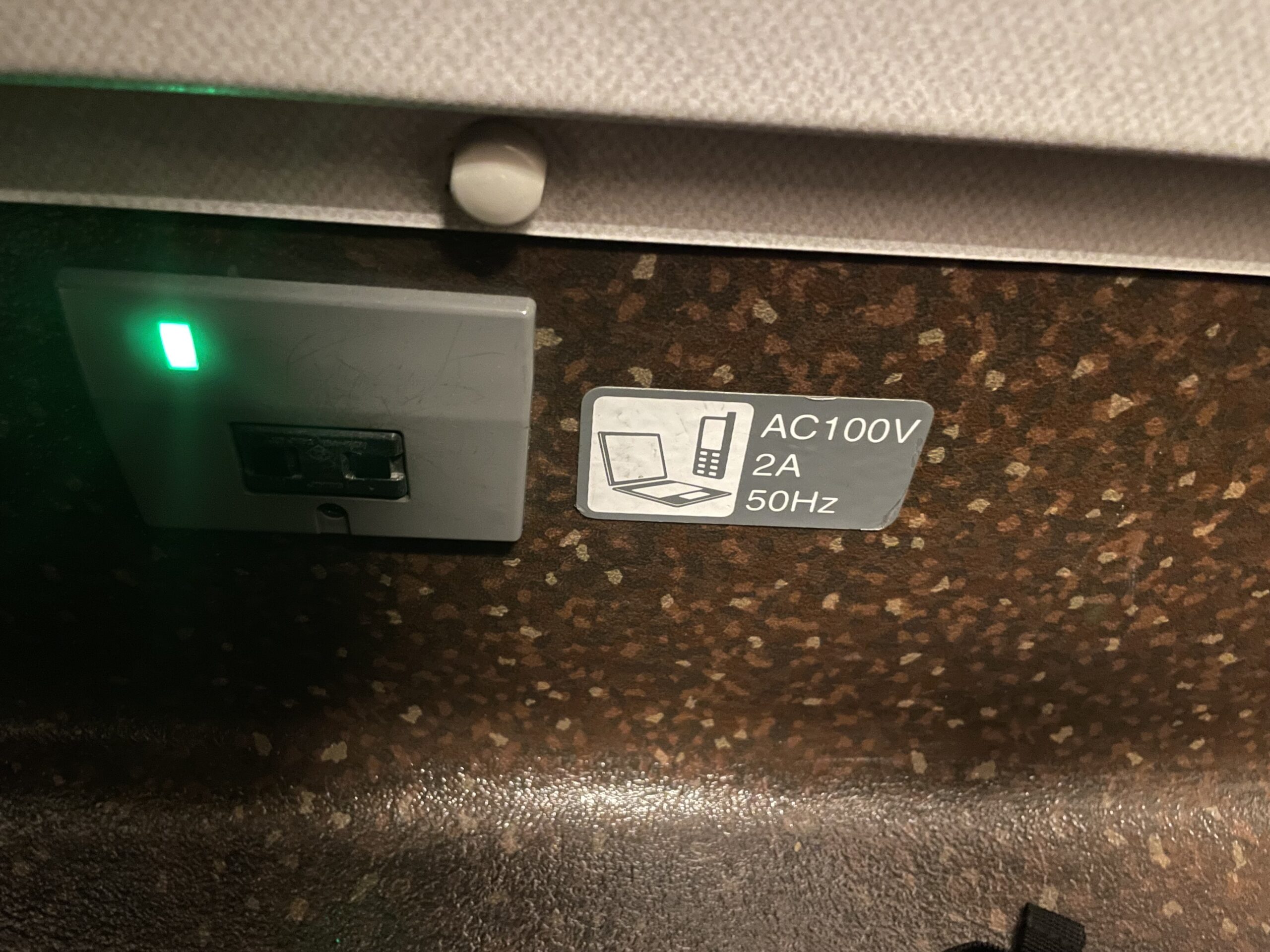
On this train, there were charging ports at each seat. The window seat’s outlet was on the side, and the middle and aisle seat’s outlets were on the seat in front. However, some older model trains only have charging ports on the window seat, so if you need the outlet to get work done, etc., it’ll be a good idea to grab one on the window.
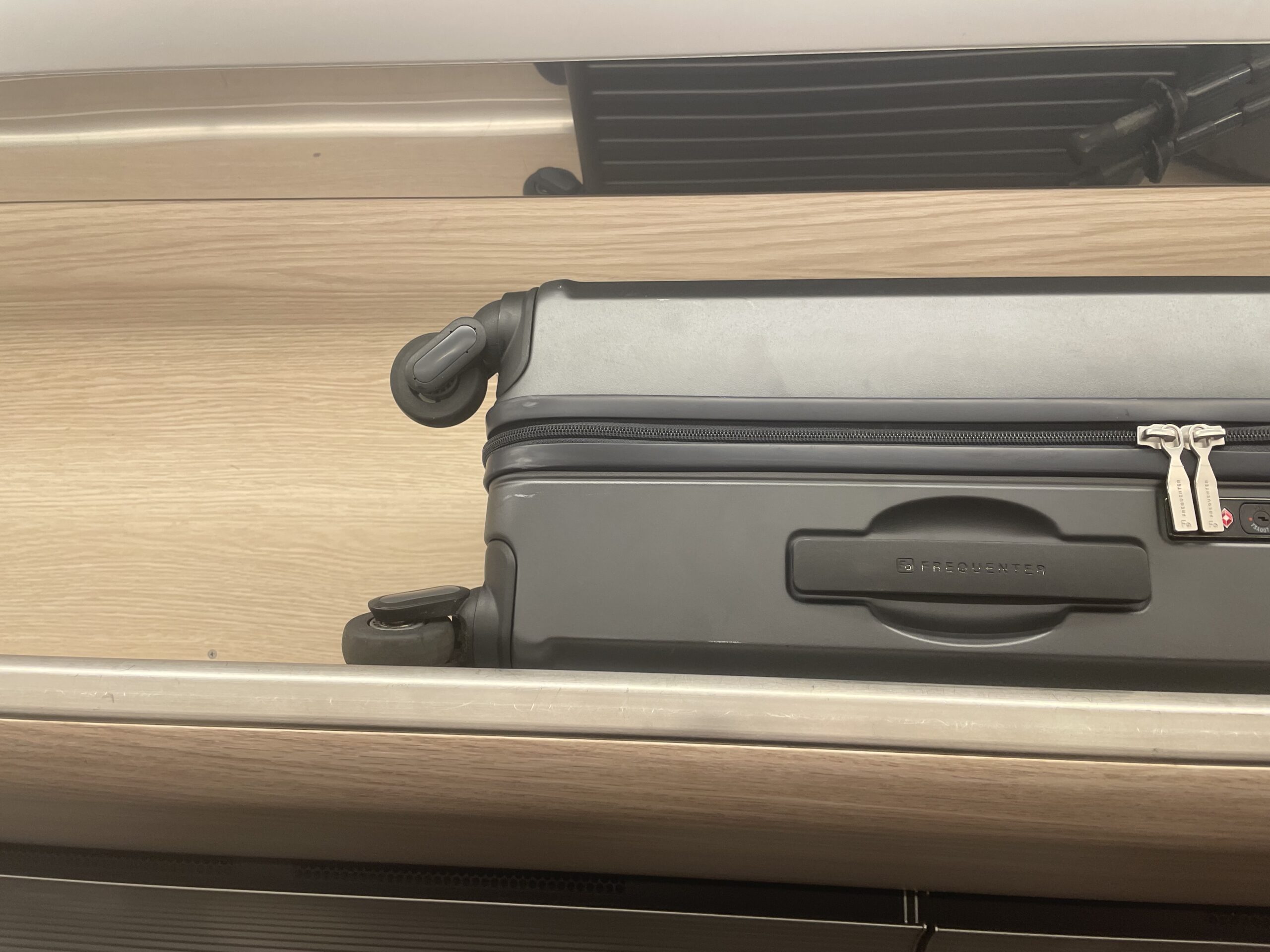
There was space over the seat for storage. They don’t close like they do on airplanes, and they don’t handle large suitcases. I had my small carry on suitcase up there, as you can see in the picture above.
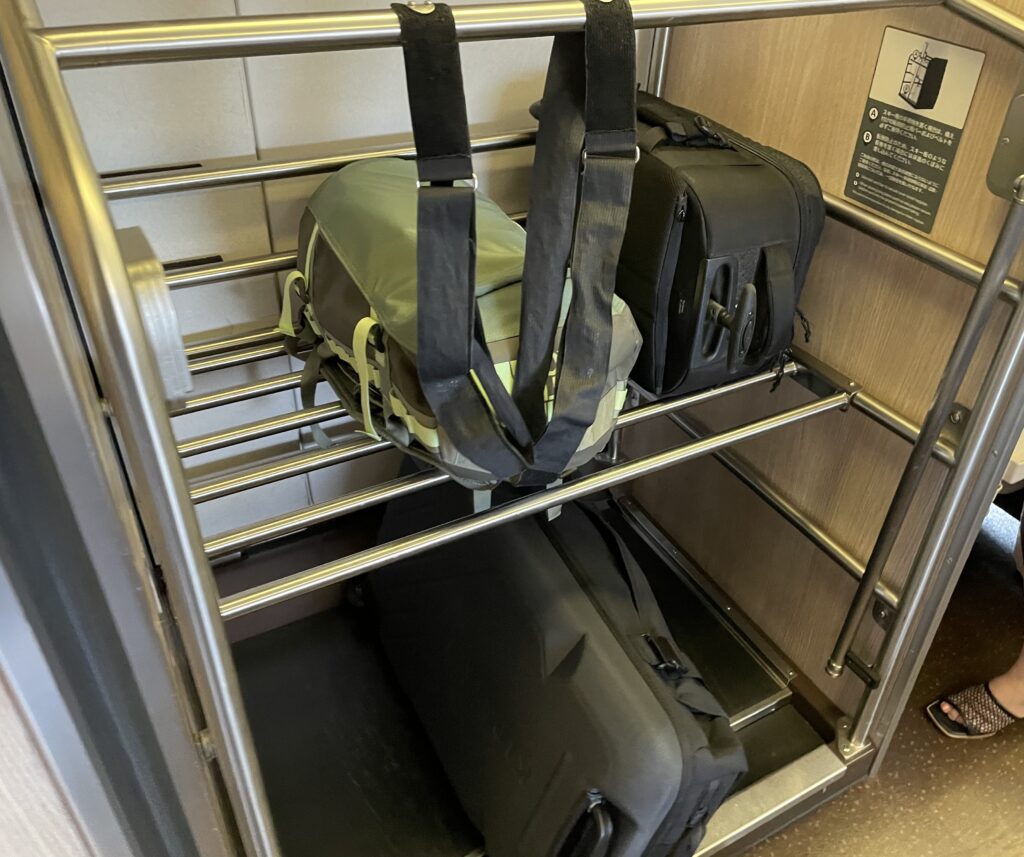
Larger luggage can be placed at these spaces at the end of the car, near the doors.
The Shinkansen Speed
The maximum speed on the bullet train was 199mph/320kph. I traveled from Tokyo to Morioka, which are approximately 310mi/500km apart from each other. The train took around 2 hours and 10 minutes or so to cover the ground, which can give you an idea of how fast and efficient the train travels. Unfortunately, I was on the train during night time, so it might be a little hard to get a sense of the speed but you can tell a little bit with the movement of the streetlights and other shadows in this quick video.
Wi-Fi
The Wi-fi was unfortunately very poor, and it was completely unusable. I tried multiple times to connect without success, and when it worked, there was no internet connection at all. The log in page popped up a couple times but a “Web page not found” was in place of that page.
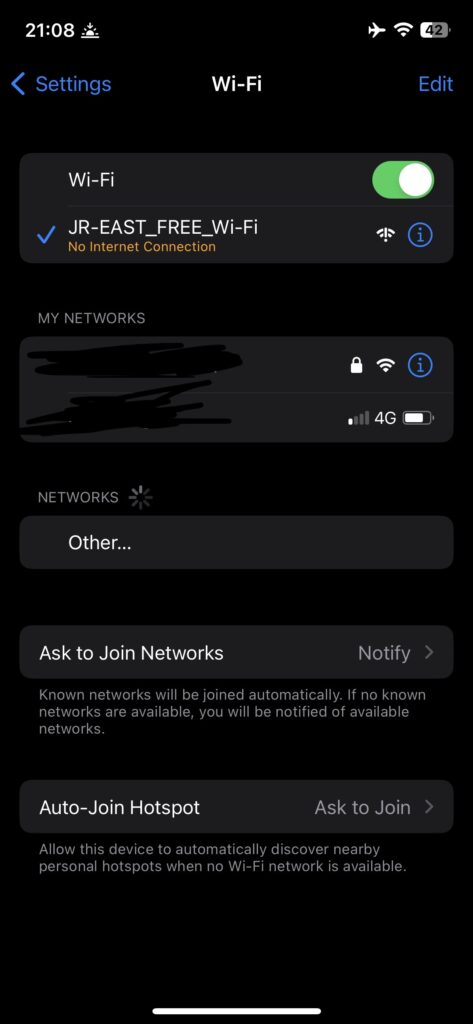
An internet connection is something to be prepared for when visiting Japan, as the country is still behind when it comes to the availability of wifi in both public spaces and in some households.
Restrooms
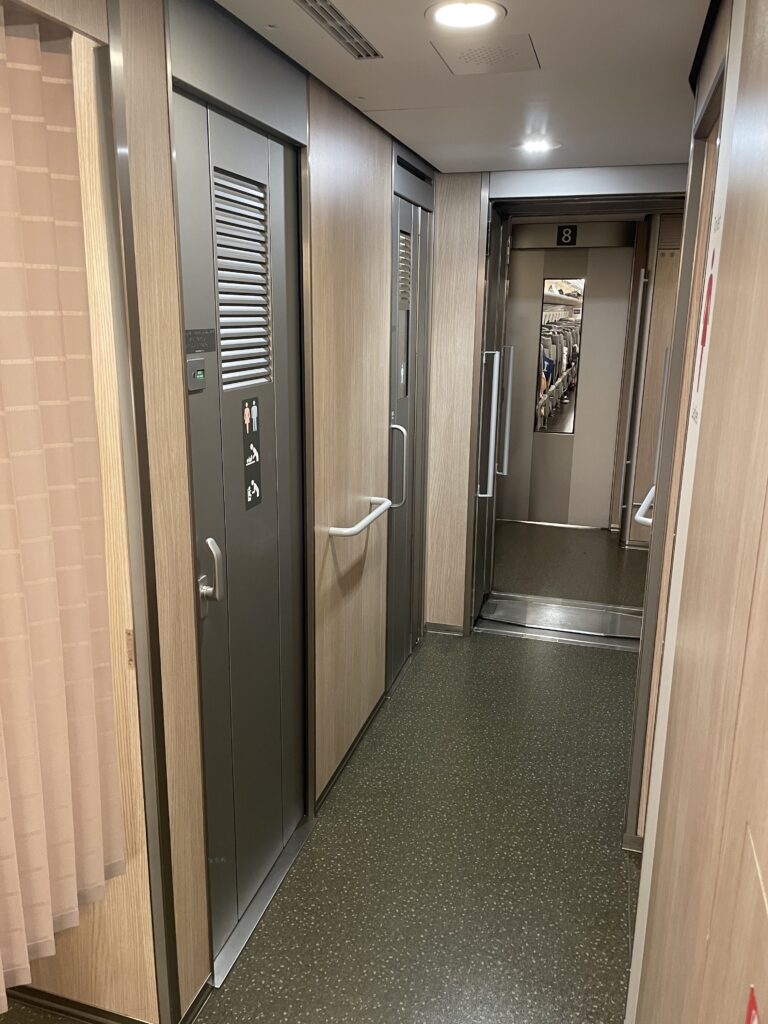
Restrooms were located in odd number cars (Cars 1, 3, 5, 7, and 9) at the ends of the cars. There are several in a hallway, and a sink is located outside the restroom. There is a wheelchair accessible bathroom in car 5.
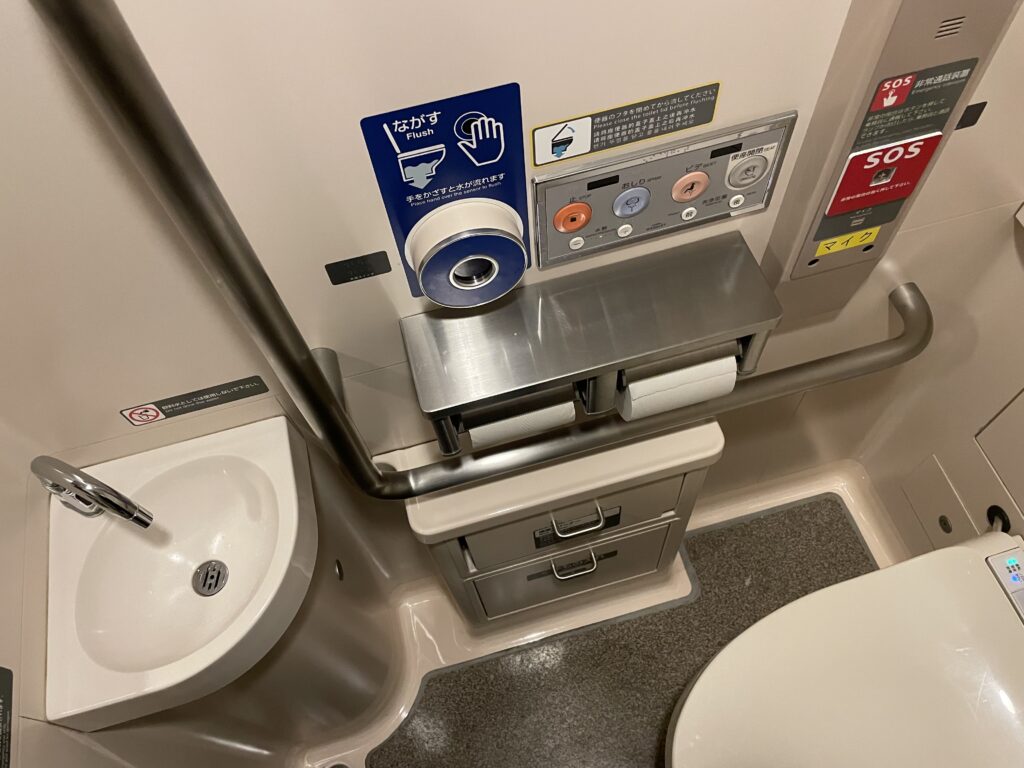
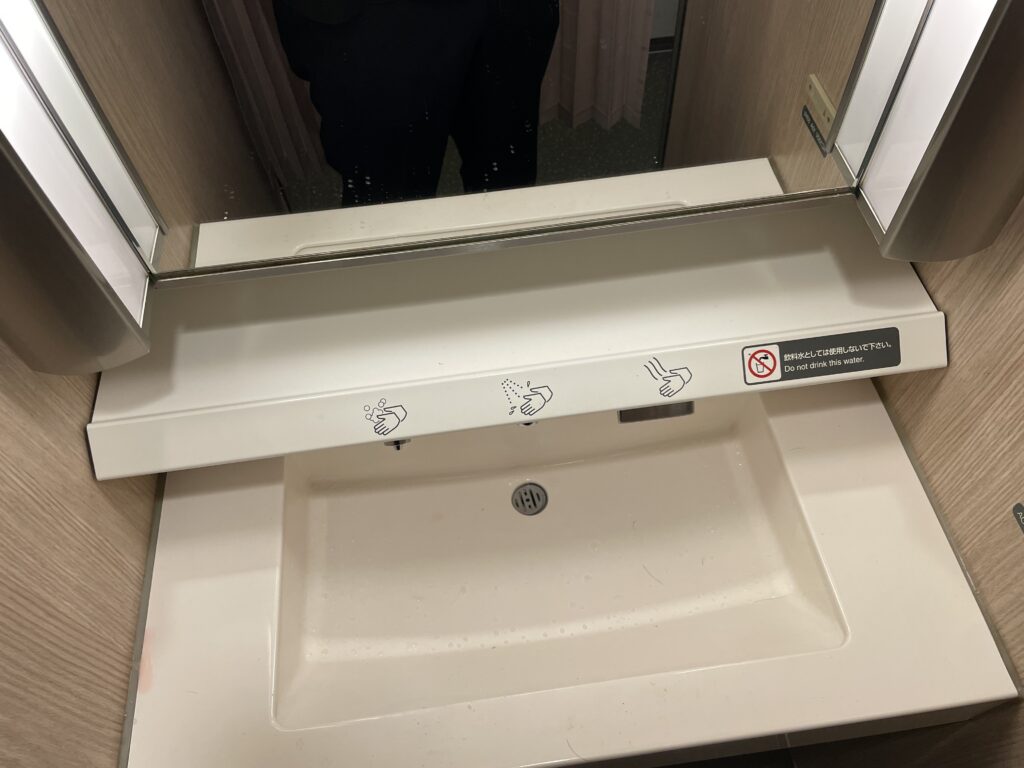
Concluding Thoughts
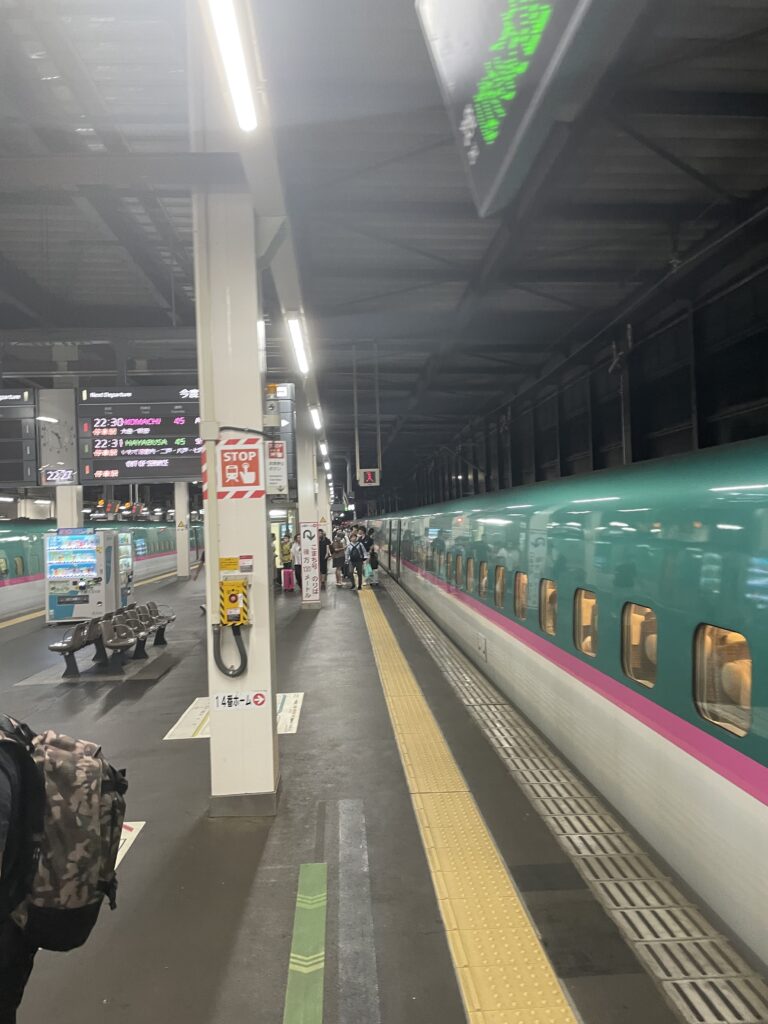
Having traveled on the bullet train, the biggest takeaway from the trip was its convenience and how easy it was to ride the train. It doesn’t require you to be at the station early like an airport, you depart and arrive at a central location, and of course, the speed. Japan is continuing to improve their service of their bullet train, so it’s only a matter of time we see faster trains and even greater convenience to an already extremely efficient system.
All photos taken by the author.



